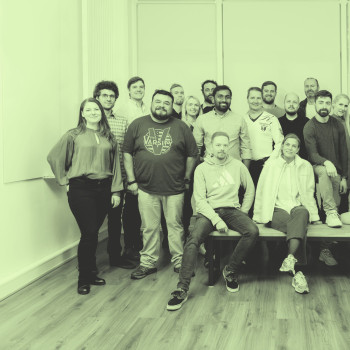Carbo Culture – Sights set on global leadership in carbon removal

The Carbolysis reactors patented by Carbo Culture produce high-quality biochar from industrial by-products on an industrial scale. Renewable energy is released as part of the biochar creation process. The growth company’s first commercial facility will be ready in 2025 and be capable of removing 20 kilotonnes of carbon dioxide a year by storing it in biochar.
Why?
In its April 2022 report, the Intergovernmental Panel on Climate Change (IPCC) stated that carbon dioxide will need to be removed from the atmosphere in order to meet the goals set in the Paris Agreement on Climate Change. In early 2024, a pan-European agreement was reached that helps the EU achieve carbon neutrality by certifying carbon removals and conservation agriculture.
Biochar is one of the longest-used methods for storing carbon. Now new technology that can be deployed on an industrial scale is enhancing efficiency in the use of biochar. Carbo Culture has an ambitious goal for carbon removal: it plans to capture and store one million tonnes of carbon dioxide from the atmosphere by 2030. The capacity of today’s largest players in the sector is calculated in tens of thousands of tonnes.
What and how?
To avoid the worst impacts of climate change, carbon must not only be removed from the atmosphere but also permanently stored. Using Carbo Culture’s technology, the carbon in biomass does not escape into the atmosphere but instead is captured and converted at high temperatures into solid biochar. The biochar, which has a purity of over 85%, remains underground in solid form for over a thousand years.
The patented technology extracts the maximum possible benefit from the biomass and, in addition, enables recovery and sale of the energy released in the process. There are three actual products: the biochar created, which can be used as a soil enhancer; the energy released in the process; and the carbon removal credits that can be sold to companies working to reach their net-zero targets.
Growth and internationalisation
Carbo Culture’s technology and project expertise will be used to commercialise biochar production on an industrial scale globally. The project will be implemented with local partners, such as producers and buyers of energy.
The company has secured EUR 26 million in growth financing on top of EUR 5 million in grants and state support. The first commercial-scale plant is currently under construction and negotiations about new large-scale projects are ongoing. Business operations can be scaled as demand grows from project to project.
The importance of venture capital
The rapidly growing climate sector has caught the interest of early-stage venture capital investors over the last two years. Initially backed by venture capital and state grants, Carbo Culture’s operations are transitioning from the pilot phase to the first commercial projects.
Growth financing has been crucially important from an early stage because top talent in the technology sector, essential for operations, cannot be recruited without financing. Tesi’s role is to help Finnish companies succeed and to promote sustainable and carbon-neutral growth.
General information
Operating in the USA, Finland and the UK, Carbo Culture uses industrial by-products to produce high-quality biochar that stores carbon for a thousand years. The company currently employs 35 people. Established in 2016, Carbo Culture secured pre-seed funding in 2018 and raised some EUR 16 million (USD 18 million) in 2023.
Carbo Culture has set its sights on becoming a global leader this decade. Alongside carbon removal and the achievement of global climate goals, the objective is to create a company operating on the sustainable economy model for a growing and innovative industrial sector.

Sights set on global leadership in carbon removal

“A venture capital and private equity investor such as Tesi is of critical importance – especially in the phase of proving commercial potential. Venture investments are also needed for building infrastructure.”
- Henrietta Moon, CEO & Co-Founder, Carbo Culture